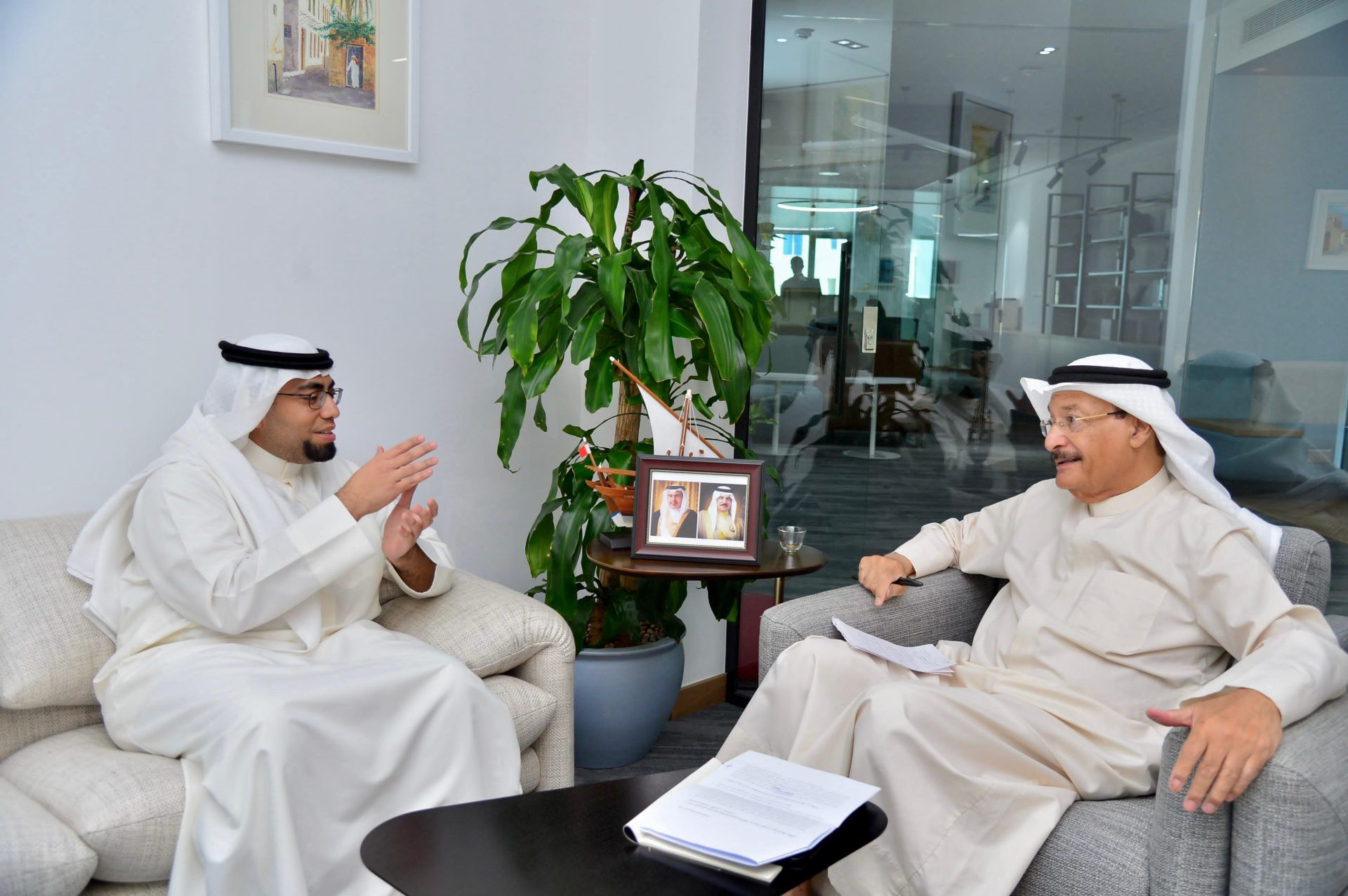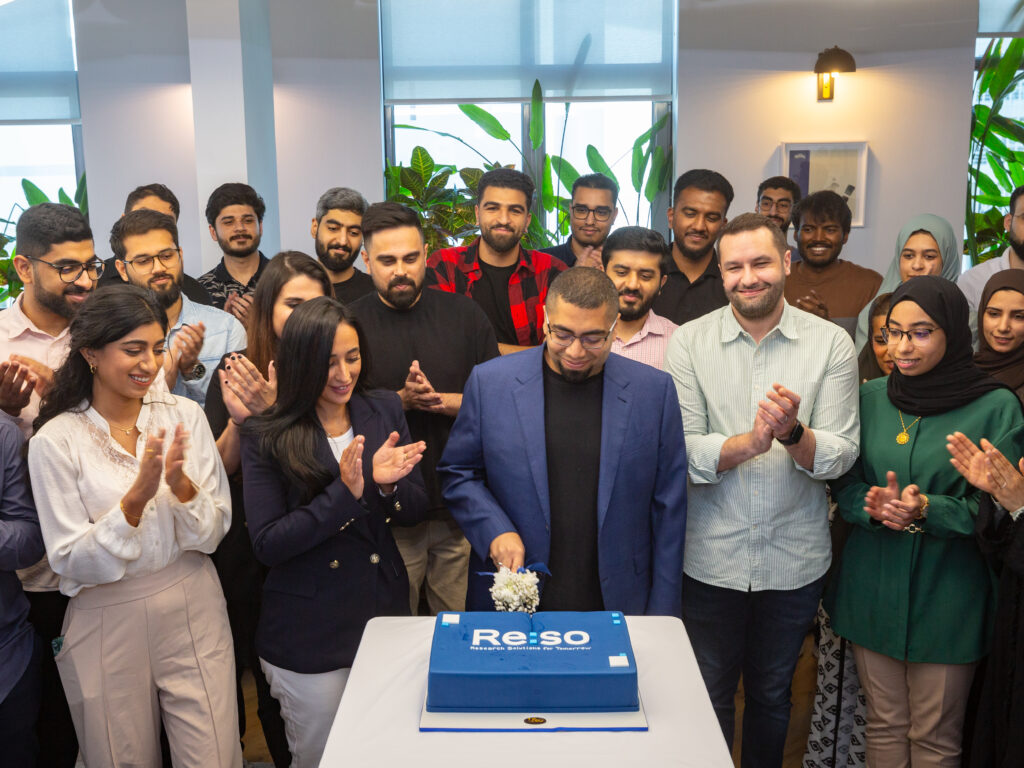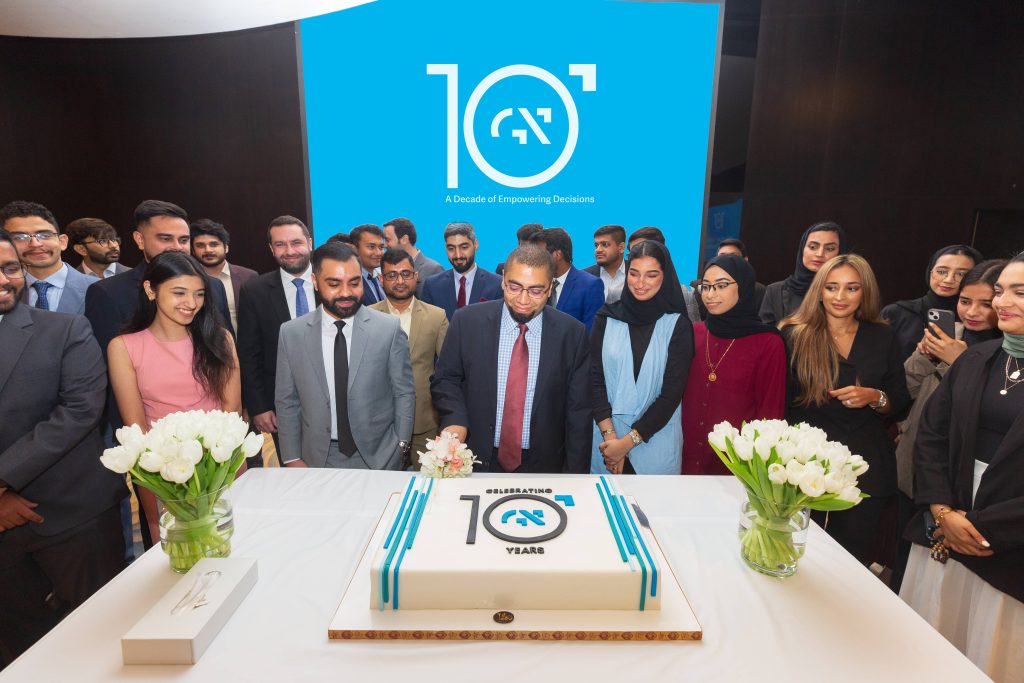

His Royal Highness the Crown Prince and Prime Minister is a principal supporter of scientific research – Mahmood Kamel AlSaleh
Preface and Introduction
In examining the current state of the research market in Bahrain and the greater Arab region, we considered several different points. We examined research quality and credibility, data reliability, as well as cost and impact. We explored the connection between the development of scientific research and economic development. We considered the argument – that subpar research is currently being offered and that there is insufficient understanding of the changes needed to improve it. We acknowledged the perception that research is seen as an unimportant extension to a project rather than an important investment and a critical enabler. We also took into consideration the fact that not a single Arab country ranks among the top twenty producers of scientific knowledge worldwide. In examining these points, we find ourselves facing a huge gap in awareness of the significance and necessity of research.
These are key insights gained from a conversation on the reality of the research market, and whether we are experiencing an inherent arbitrariness in quality of market research. While the person we speak to eliminates the complete randomness in this market, he still acknowledges that the sector requires higher levels of professionalism. This, he indicates, is the main motivation behind the establishment of his company, which works on creating effective partnerships with considerable value to help in designing and making decisions. He continues to highlight how he operates under the conviction that challenges create opportunities.
This conversation was held with Mahmood Kamel AlSaleh, the Managing Director of Gulf Researcher, which specializes in offering research services. The company, headquartered in Bahrain with several international offices, recently celebrated its 10th year anniversary. He discussed key issues on the current landscape of scientific research, while initially expressing regret for the absence of any Arab country among the top twenty scientific research producers. He adds, even when taking into consideration the scientific output relative to the population, university students, faculty members, and researchers, our ranking remains lagging behind.
Research Market and Shaping Trends
Discussing the research market in Bahrain and the region, AlSaleh states: it is a promising field, with local, regional and international organizations becoming increasingly convinced of the significance of research as a cornerstone for building and shaping trends.
He continues: As widely recognized, we live in a fast-paced and highly-intricate world, wherein research plays a key role in forming a realistic understanding of this intricacy and rapidity, while enabling effective handling of any ensuing outcomes. It is no longer viable for companies and governments to make random or ill-considered decisions, as entities have now realized that their work must be factual and evidence-based, supported by studies and data, in order to align with the aspirations and expectations of targeted audiences and beneficiaries. Conversely, there is a growing need for increased accountability and oversight. Based on experience, we can affirm that there is now a greater belief and conviction in the necessity of relying on research institutions and expertise.
Mahmood AlSaleh elaborates further: With regards to the Kingdom of Bahrain, there has been a significant transformation in the research sector and overall landscape, due to the leadership and direction of His Royal Highness the Crown Prince and Prime Minister. This was clearly observed in the public sector, wherein government entities and young decision-makers have become more committed and interested in research studies, diverting away from arbitrary decisions that lack factual or numerical basis. Furthermore, this has created momentum for awareness on research and studies, increasing demand accordingly. Similarly, we have witnessed positive and notable transformations in neighboring countries, which drove our regional expansion plans, especially within the Kingdom of Saudi Arabia. Years ago, we had to convince clients of the necessity for studies and research, whereas today the opposite is true, as there is a consolidated conviction of the significance and necessity of this field, particularly in light of economic challenges, market fluctuations, and other stresses in the system. This has encouraged a surge in demand for research, even during the pandemic, and this market continues to grow today.
Randomness, Professionalism, and the Required Credibility
Addressing another aspect in response to a question, Mahmood AlSaleh states: Despite what has been mentioned, there are those who argue that regional countries suffer from unstructured and arbitrary market research.
In response, he asserts: Research is not necessarily random and arbitrary, but that the research coming out of the region does require more rigor and professionalism. Market research needs to be improved in terms of both quality and credibility, as it does not align with individual and business expectations in the region. It is also not advisable to blindly rely on any study when making a decision, even if it is conducted by a renowned entity.
What is the desired area and level professionalism?
He answers: Professionalism in conducting research and studies, as well as professionalism in how to use and benefit from these outputs. With regards to the former, we are in need of people and tools, that is competencies and cadres, in addition to research tools, technologies, and methodologies. A key fact that must be highlighted is the lack of specialized talents and expertise, therefore the consequent lack of knowledge on harnessing the tools and technologies to elevate the level of studies, research, and their outcomes. As for the second aspect, it is connected to the mindset that used to prioritize the superficial aspects of preparing studies, perhaps for promotional reasons or to reinforce specific goals or agendas. Thankfully, this mindset has diminished, or I can even say it no longer exists. Instead, we find the opposite, which is a keen focus on achieving maximum benefit from studies.
Going back to the phenomenon of arbitrariness and disorganization in the research market, we ask about the main reasons
AlSaleh answers: This is also attributed to an important factor, which is the limited availability and reliability of the data used, as well as the entities limited capability to identify trustworthy data and the best analysis and utilization methods. The irony here is that this factor was the driving force behind the establishment Gulf Researcher in the first place. As they say, challenges create opportunities, and it is worth noting that clients today have become more informed and aware. This is a positive development that should be leveraged to always deliver the best.
He elaborates further: The research market, like any other field, has positive participants and non-constructive participants, it is a mixed-bag. While research efforts in our region developed in recent years, they still require further advancement. The emphasis here is not on quantity but on quality, as research tools are not rigid templates aimed at directing and influencing the audience in a promotional and subjective manner. Instead, they are important drivers to understand the actual directions and complex needs of targeted audiences, and then building upon that knowledge. The good news is that data is now more accessible than ever before. Therefore, the opportunity is ripe to produce reliable research that represents different segments and covers multiple aspects that were previously difficult to access.
Research Companies, Challenges, and the Role of Universities
What are the specific challenges facing research companies?
Companies offering market and investment research services face two primary challenges, in relation to the recipients of these studies, as well as the research companies themselves, including their capabilities and resources. This is especially true when considering the vast amount of information, data, and statistics produced in the past two years, which is equivalent to 90% of all data generated since the beginning of humanity. The main reasons for this are the internet, the information revolution, and search engines, which simultaneously present an opportunity and a challenge. The opportunity lies in how to leverage this wealth of information effectively, while the challenge lies in how to differentiate reliable data from misleading or inaccurate information.
What about the role of universities and academic institutions in supporting research activities?
Academic institutions are expected to have a primary and central role in research production. However, the reality in our region is different, as this role is not appropriately activated, unlike developed countries that place great emphasis on building and enhancing the reputation of academic institutions through research and development. Of course, we do not deny the current efforts in developing research production in our local and Arab universities, as well as the serious desire of regional governments to transform their economies into knowledge-based economies, given that knowledge is akin to an inexhaustible supply of oil. However, we also recognize that this requires stronger commitments and more determined efforts. The potential exists, and we are confident that we will achieve the deserved status in this field in the near future.
From this perspective, we also urge universities to activate their research role and build wider partnerships with the private sector, producing research with practical significance. This includes shedding light on major challenges faced by enterprises, especially in the private sector, in order to contribute in finding innovative solutions. Certainly, we emphasize that research output only grows in an integrated environment, which necessitates the establishment of effective partnerships with researchers, academic institutions, and research entities.
However, it is assumed that these enterprises generally do not address the needs of their societies?
That is correct, and to further solidify the approach I pointed to, it is crucial for academic institutions and universities to address the needs, developments, and trends in their respective fields, not exclusively in academic and theoretical approaches. Awareness is required in this aspect, not just from universities, but from policy-makers as well.
And is there a challenge facing research companies regarding the technological aspect?
We believe that today’s challenge lies in finding technical partners who possess the required expertise and deep understanding to translate our visions and operations,and develop customized tools that serve our objectives. Fortunately, we have succeeded in developing cloud-based solutions that automate our services and our customer journey entirely. We believe that this makes a significant difference in the way we operate in the coming period. Creating effective partnerships is among our top priorities during this period.
Were research firms based in the GCC able to penetrate international markets?
Yes, that has indeed happened. International companies and organizations have started seeking out services from Gulf-based companies, including our own. Today, Gulf Researcher conducts business in key European and Asian markets, which we have achieved thanks to the exceptional talents and capabilities of our team, which includes both Bahraini and multi-national colleagues. We are in the early stages of our journey, and we have a long road ahead of us. However, we have already began developing and enhancing our international relationships, some of which are in important global markets.
Strategic Partnerships and The Multi-stakeholder Equation
You have recently announced that you entered strategic partnerships that address vital projects with key strategic dimensions. What are the main features of these strategies? and what does these partnerships signify?
At Gulf Researcher, we focus on marketing, investment, and policy research. Our work is based on the principle of partnership, meaning that we play an integrative role as a research arm alongside top leaders and executives in both the public and private sectors. In addition, we also collaborate with strategy departments or research divisions within these institutions. Therefore, our scope of work has a significant strategic impact, as it is primarily connected to decision-making processes that directly influence the trajectory of countries and societies.
Furthermore, we have several partnerships with key and influential players in the research sector. Research is a connected network that requires collective efforts in various areas that cannot be fully undertaken by a single entity alone. It is a multi-stakeholder equation where each party contributes their capabilities and expertise to contribute to success.
He adds: We are fully aware of the importance of information technology infrastructure as it facilitates our tasks on one hand and provides secure research solutions on the other. Being a research enterprise, the technical tools we rely on undergo continuous evaluation. Our team assesses the effectiveness of these tools in enriching the customer experience, improving work efficiency and processes, and strengthening security measures. We believe that adopting various technological tools, such as cloud solutions, for example, is now a necessity rather than an option, therefore, we heavily invest in them. To this end, Gulf Researcher is proud to have recently obtained the prestigious ISO27001 certification for information security and customer data protection.
Social responsibility, are there any initiatives that showcase the role of Gulf Researcher in this area?
We consider social responsibility to be fundamental and thematically-driven, rather than comprising of ad-hoc initiatives. At Gulf Researcher, we believe that the secret to the success of any social responsibility activity lies in its connection with the identity of the organization. Therefore, we have decided to focus on the youth and empower them in the research field as one of our prominent themes and priorities in this area. We have launched several initiatives, such as sponsoring the Scientific Research Forum at the University of Bahrain in collaboration with the College of Engineering. Currently, we are preparing for future training workshops to enhance research skills for school students and university students. Additionally, we will soon announce the launch of a competition targeted at university graduates, where the winners will have the opportunity to secure permanent employment with us. Our aspiration is to serve as a research incubator that contributes to the development of capable researchers who create impactful success stories and actively contribute to the progress of our nation.




